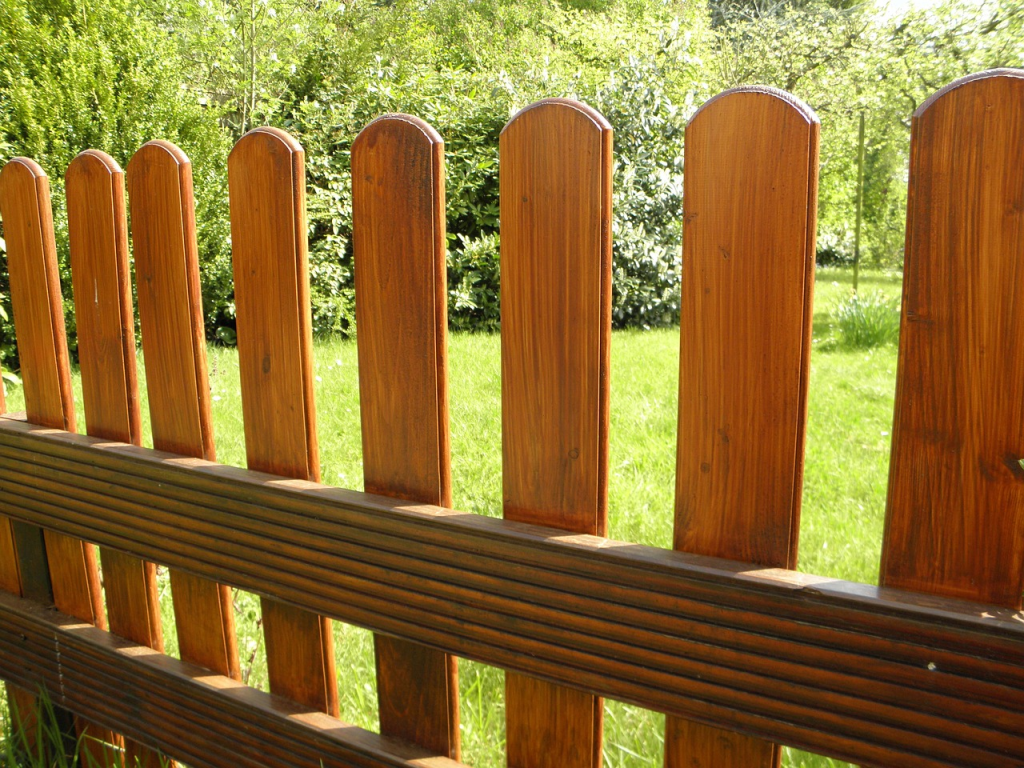If you are planning on installing a garden fence, you will need to consider various factors and plan the job ahead of time. So, here are 12 best practices. By following these tips and tricks, you can ensure you complete the project perfectly.
1. Choose the Right Material for Your Garden Fence
Firstly, it is essential that you select the best material for your garden fence. When picking fencing material, consider durability, aesthetics, and maintenance.
For example, wood fences might offer a nice traditional appearance but may require more maintenance than vinyl or metal options. On the other hand, metal fences provide excellent durability but might not fit the aesthetic of every garden.
2. Explore Various Styles
Fences come in all shapes and sizes. From picket fences that ooze charm to privacy fences that shield you from prying eyes, each style has its unique appeal. So, explore various styles and choose one that suits your needs and complements your garden aesthetics beautifully.
3. Consider Functionality and Design
A common mistake many people make when constructing their garden fence is overlooking its actual purpose. Is it designed mainly for protection against animals? Or is it purely an aesthetic addition? Perhaps, it can serve both purposes.
Understanding what you want from your fencing system beforehand ensures you will meet its primary function while also ensuring it complements your garden design.
4. Pay Attention to Height
Height matters, too. If you are looking for more privacy in your backyard oasis, a taller fence can be the perfect solution. However, you have to be mindful of any local regulations that might limit how high you can build your fence. So, be sure to do your homework beforehand.
5. Consider How Level the Ground Is
Having level ground is not always possible when installing garden fences, especially on hilly landscapes. If this is the case, stepped or sloped fencing styles can be implemented. However, dealing with non-level ground can increase the complexity of installation. So, in such cases, you might want to consider getting professional assistance.
6. Consider Wildlife
If wildlife frequently visits your garden and you would like them to be excluded, a tall fence with underground barriers can work wonders. Conversely, if you enjoy the presence of wildlife in your garden but want to keep creatures away from certain areas, strategic short fences around those sections could do the trick.
7. Make Sure You Are Aware of Legalities and Boundaries
Keep in mind local regulations regarding fencing height and style before proceeding with the installation. It is also essential to identify your property boundaries accurately to avoid disagreements with neighbors in the future.
8. Get Accurate Measurements
Before commencing the installation process, ensure that you have all the correct measurements for your fencing area. An inaccurate measurement could result in a shortage of materials or an irregular fence layout. Consider potential obstacles such as existing trees, too, and plan accordingly.
9. Check for Underground Utilities
It is crucial to check for any underground utilities before starting your fencing project. You will want to avoid accidentally hitting water or gas lines when you dig post holes. So, call your local utility companies to find out where it is safe to dig.
10. Ensure You Install the Fence Posts Correctly
The posts are the backbone of your garden fence, as they provide the necessary support. Ensure the fence posts are installed deeply and securely in the ground by using concrete for additional stability. The lifespan and sturdiness of your fence heavily rely on these supporting poles, so never skimp on this step.
11. Perform Regular Maintenance
Garden fences can significantly change the appearance and safety of your garden over time. Therefore, maintaining your fence is key to keeping its visual appeal and functionality intact. Regular painting or staining and fixing any broken parts promptly after you have installed your fence will prevent costly repairs in the future.
12. Consider Hiring Professionals
While DIY projects can be rewarding and cost-saving, some aspects of fence installation may require professional handling; especially tricky tasks like dealing with slopes or installing underground barriers. So, do not hesitate to hire professionals if the task seems too daunting.
Becoming a Professional Fence Installer
If you find you complete the job easily without the need for professionals, and once you have honed your skills in garden fencing and developed an understanding of various materials, methods, and styles, you could consider setting up your own fence installation business.
To set up your business, you will need to form your business legally, gain suitable insurance to cover things like workplace injuries and property damage, and create a business plan that includes things like marketing strategies and costing.
You will need to calculate labor and material costs before you come up with a pricing strategy for estimating fence jobs. You can then provide potential customers with competitive quotes and ensure your business is profitable.
Marketing your services is equally important. You could build a website to showcase your talents and attract leads, use social media platforms for promotion, join local contractor networks to raise visibility, or market your services in traditional ways, such as doing leaflet drops and placing ads in local newspapers.
The Takeaway
By following the above tips, tricks, and more, you can ensure you choose the right fence for your garden and install it correctly. You will then have a fence that provides functionality and aesthetic quality to your outdoor space.

